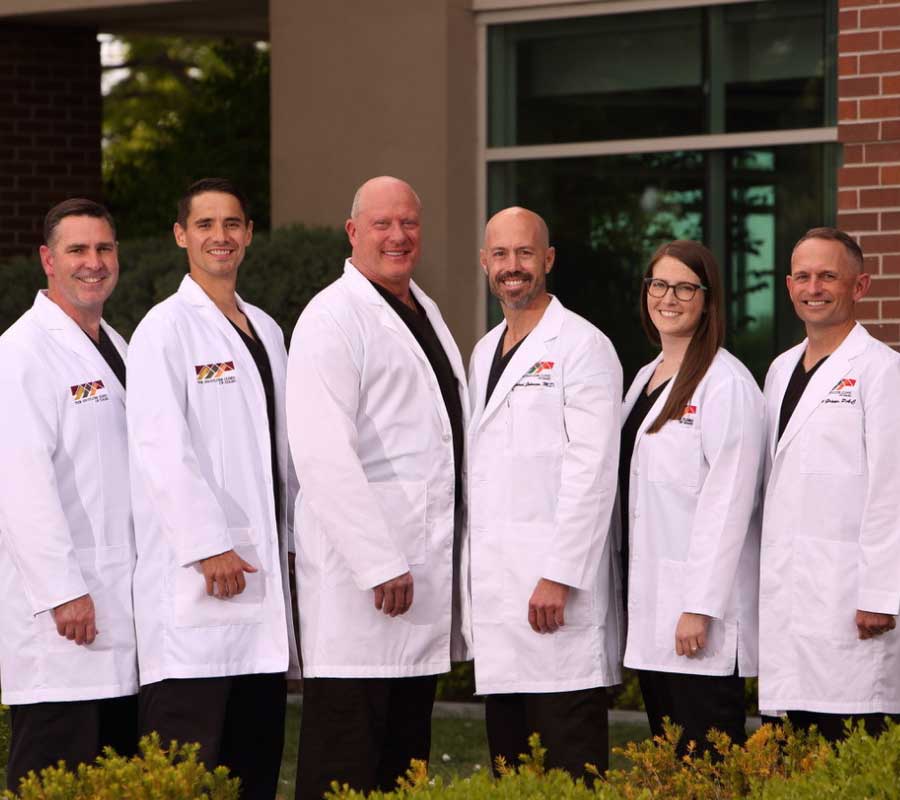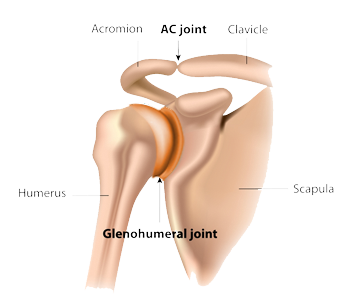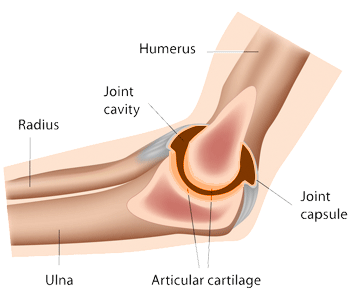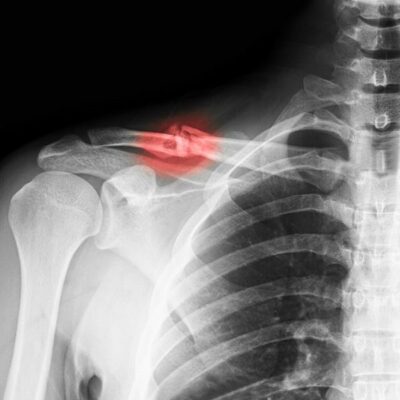Broken Shoulder Specialists

Are you an athlete who participates in contact sports? If so, you may be at risk of sustaining a shoulder fracture. A shoulder fracture is commonly caused by sudden force, impact or trauma to the joint during sports activities or a hard fall. The broken shoulder specialists at Shoulder Clinic of Idaho provide diagnosis and both surgical and nonsurgical treatment options for patients in the Boise area who have sustained a shoulder fracture. Contact the Shoulder Clinic of Idaho team today!
What is a shoulder fracture?
Many people, in their lifetime, will experience a fracture of the shoulder and clavicle. A common injury caused most often by a direct blow to the shoulder, the result of a sports collision, the result of a work accident, or automobile accident. Fractures of the shoulder and clavicle can be very painful and need to be treated correctly. The shoulder specialists at The Shoulder Clinic of Idaho, can help patients in Boise, Meridian, Nampa, and the surrounding communities of the Treasure Valley recover from a fracture to the shoulder and clavicle. They are experienced in treating this type of injury and can return patients to their active lifestyle.
What kinds of shoulder fractures are there?
When doctors refer to a fracture of the shoulder, they will classify the fracture, based on which bone in the shoulder is broken. The most common fracture of the shoulder is called a clavicle fracture. Also called the collar bone, the clavicle is the long, thin bone that begins at the base of the neck and extends to the shoulder. It acts as a strut – transferring load from the arm to the axial skeleton.
A humerus fracture is when the long bone of the upper arm is broken. Fractures can occur in this bone at the top portion of the bone (proximal humerus fracture), in the middle portion of the bone (humeral shaft fracture), or at the bottom of the bone near the elbow (distal humerus fracture.)
The least common fracture of the shoulder is called a scapula fracture, or shoulder blade fracture. This flat, triangle-shaped bone is located in the upper back. Only 1% of all fractures are of the scapula, itself, and only make up 3% – 5% of all shoulder fractures. It’s a very difficult bone to break, given its location and surrounding tissue, but can be caused by a traumatic accident with high energy as seen in an automobile accident, fall from significant height or a tackle in football.
What is a displaced or non-displaced shoulder fracture?
The Shoulder Clinic of Idaho classifies fractures of the shoulder and clavicle as being displaced or non-displaced. A displaced fracture is when the broken bone is separated and is no longer in the correct anatomical position. A displaced shoulder fracture may require a certain level of manipulation or treatment to restore the normal anatomy of the shoulder and is often done through surgery. A non-displaced shoulder fracture is when the broken bone pieces line up correctly on each side of the break. The bone is in alignment, but broken, or fractured. If a fracture is non-displaced, it may have an opportunity to be treated without surgery. The shoulder specialists at The Shoulder Clinic of Idaho have experience in treating all types of fractures of the shoulder and clavicle and can help you better understand the specific characteristics of your fractured shoulder and how best to treat it.
What are the symptoms of a shoulder fracture?
- Intense shoulder pain, especially with motion or palpation
- Inability to move the shoulder or the arm without pain
- Bruising or skin discoloration around the area of the break
- Swelling of the shoulder area
- Tenderness in the shoulder joint
- A bump at the site of the break, under the skin
How is a shoulder fracture diagnosed?
If a shoulder fracture is suspected, urgent evaluation should be considered. X-rays will typically show a break, but in more serious cases 3-D imaging may be necessary with a CT scan. The orthopedic specialists at The Shoulder Clinic of Idaho may suggest a repeat x-ray, MRI scan or CT scan to fully assess the fracture pattern and to determine if there is additional damage to the shoulder joint which may help identify the best treatment alternative for your fracture.
What is the treatment for a fractured shoulder?
Non-surgical:
Fractures of the shoulder and clavicle that are classified as on-displaced can often be treated without surgery. If the bone fracture will heal and return good shoulder function to the patient without surgery, a non-surgical approach will be recommended. Initial treatment might include pain medication, immobilization with a sling and rest. When the bone has healed, physical therapy will be may be recommended for patients in Boise, Meridian, Nampa, and the surrounding communities of the Treasure Valley to help aid in a safe return of normal comfort and function of the shoulder.
Surgical:
If the bone does not heal with non-surgical treatment or if the fracture is significantly displaced, shoulder fracture surgery may be suggested to promote healing, eliminate the risk of arthritis and to aide in a more rapid restoration of shoulder comfort and function. The specific type of shoulder surgery for more severe shoulder fractures with significant displacement of the bone should be discussed with the shoulder specialists at The Shoulder Clinic of Idaho.
The Shoulder Clinic of Idaho has several shoulder specialists who are extremely skilled in numerous shoulder surgery techniques associated with treating fractures of the shoulder and clavicle. They may recommend arthroscopic surgery to perform fixation of the joint, or they may suggest an open surgery for an open reduction and internal fixation (ORIF) procedure. An open surgical reduction requires that the skin be opened at the fracture site and the bones are then realigned and held back together with surgical pins or plates. The appropriate surgery technique will depend upon the fracture type, severity of the injury, patient’s level of activity, and the patient’s expectations.
If you live in Boise, Meridian, Nampa, or the surrounding communities of the Treasure Valley and would like further information regarding fractures of the shoulder and clavicle, and to consult with one of our orthopedic shoulder specialists, please contact us at The Shoulder Clinic of Idaho.



